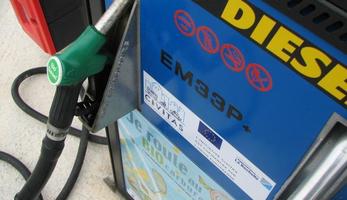Introducing biofuel fuel stations
Thematic areas
Clean & energy-efficient vehicles
Summary
In an experimental measure, biofuel was made available from two filling stations in La Rochelle for use in conventional vehicles belonging to the local authority’s fleet.
Implementing sustainable mobility
To facilitate and promote the use of alternative fuels, a biofuel blend of 70 percent diesel and 30 percent pure plant oil was used in vehicles of the Water Treatment and Waste Management Departments of the Urban Community of La Rochelle. Filling stations were constructed with automatic blending systems to supply the fuel, which can be used by conventional vehicles without any need for adaptation.
Although, at European level, Directive 2003/30/EC allows for the use of biofuel or other renewable fuels in transportation, according to French law the use of biofuels was illegal, with the exception of specific agricultural purposes. The project had therefore to be adjusted accordingly, despite a slight modification in the French legislation in January 2007.
Progress
A decision was made to use pure plant oil obtained from rapeseed. As a local crop with low water consumption, it was a suitable choice in terms of minimising negative environmental impacts. An agreement was then made with the French Institute for Pure Plant Oil for the monitoring of the fuel and vehicles over a one-year period.
The first filling station was opened in January 2007, supplying pure plant oil to eight vehicles belonging to the Water Treatment Department, followed by two further vehicles of the Waste Management Department. A total of 15,000 litres of pure plant oil were used in 2007.
A second filling station was opened in 2008.
Outcomes
The use of biofuel in La Rochelle successfully reduced emissions of particulates, carbon monoxide and, to a lesser extent, nitrogen oxides. Maintenance requirements did not increase, although minor problems were experienced with clogged filters. Fuel consumption rose by between 5 and 6 percent, in line with other experiences of high-blend biodiesel and not sufficient to offset the positive impacts.
The legal barriers created a degree of uncertainty regarding the future use of biofuels.








